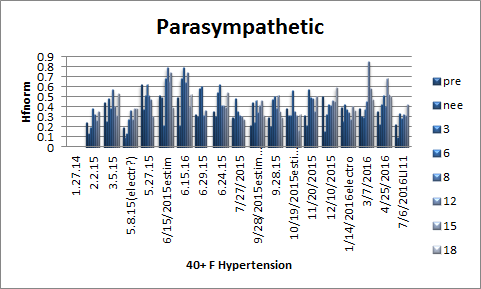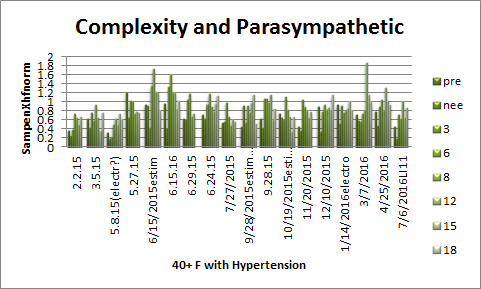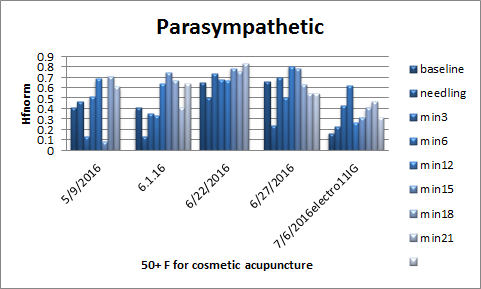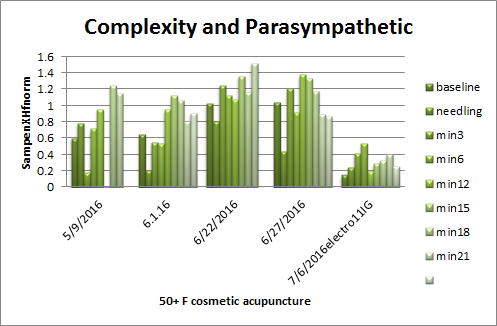Sympathetic Tone and Electrical Stim at LI11
Kristen Sparrow • July 13, 2016

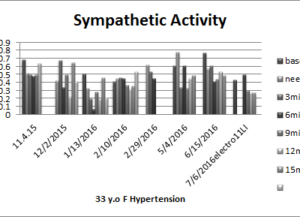 In this post, I cited the article that looked at electro at LI11. In this study it decreases sympathetic activity. I am usually looking at parasympathetic activity, but decreasing sympathetic (fright/flight) is of huge interest also. This point is also interesting because it’s an alternative point for treating high blood pressure in Longhurst’s protocol.
In this post, I cited the article that looked at electro at LI11. In this study it decreases sympathetic activity. I am usually looking at parasympathetic activity, but decreasing sympathetic (fright/flight) is of huge interest also. This point is also interesting because it’s an alternative point for treating high blood pressure in Longhurst’s protocol.
What I’m exploring in this post, is the effect of this point on HRV in various patients. Unlike in the lab, some patients respond with a decrease in sympathetic, increase in parasympathetic and others do not. Why?? What are we seeing here?
So over the last two days I tried it on a 2 patients with Hypertension, one patient who comes in for cosmetic and another who has allergies and asthma. I will present here, their parasympathetic data and their combo data of complexity and parasympathetic.
Patient 1. 35 year old with mild hypertension on no meds. Her data to the left. As you can see there were moderate improvements in her Parasympathetic and complexity and parasympathetic combined. This is what you would expect from the study mentioned.
Patient 2. 40+ year old with mild hypertension. No real improvement in her parasympathetic nor complexity and parasympathetic. So similar patients, similar medical condition. What’s the difference?. That’s the project. I didn’t include sympathetic data because it didn’t respond either.
Patient 3. 50+ year old who always has profound relaxation sensation with treatment for cosmetic acupuncture. What is remarkable in this in this patient, is that electroacupuncture at LI11 has the opposite effect and causes profound decrease in both parameters (complexity and parasympathetic) the opposite of what you would expect. What is going on?
Patient 4. 60 yr old with asthma, allergies and sinusitis. She had a significant increase in both complexity and complexity x parasympathetic. So this is where the project is. Why? Can we somehow explain the differences in these patients in some way so that we can better predict response? Of course clinical correlation will be important and it will be fascinating to find out how patients fared.


